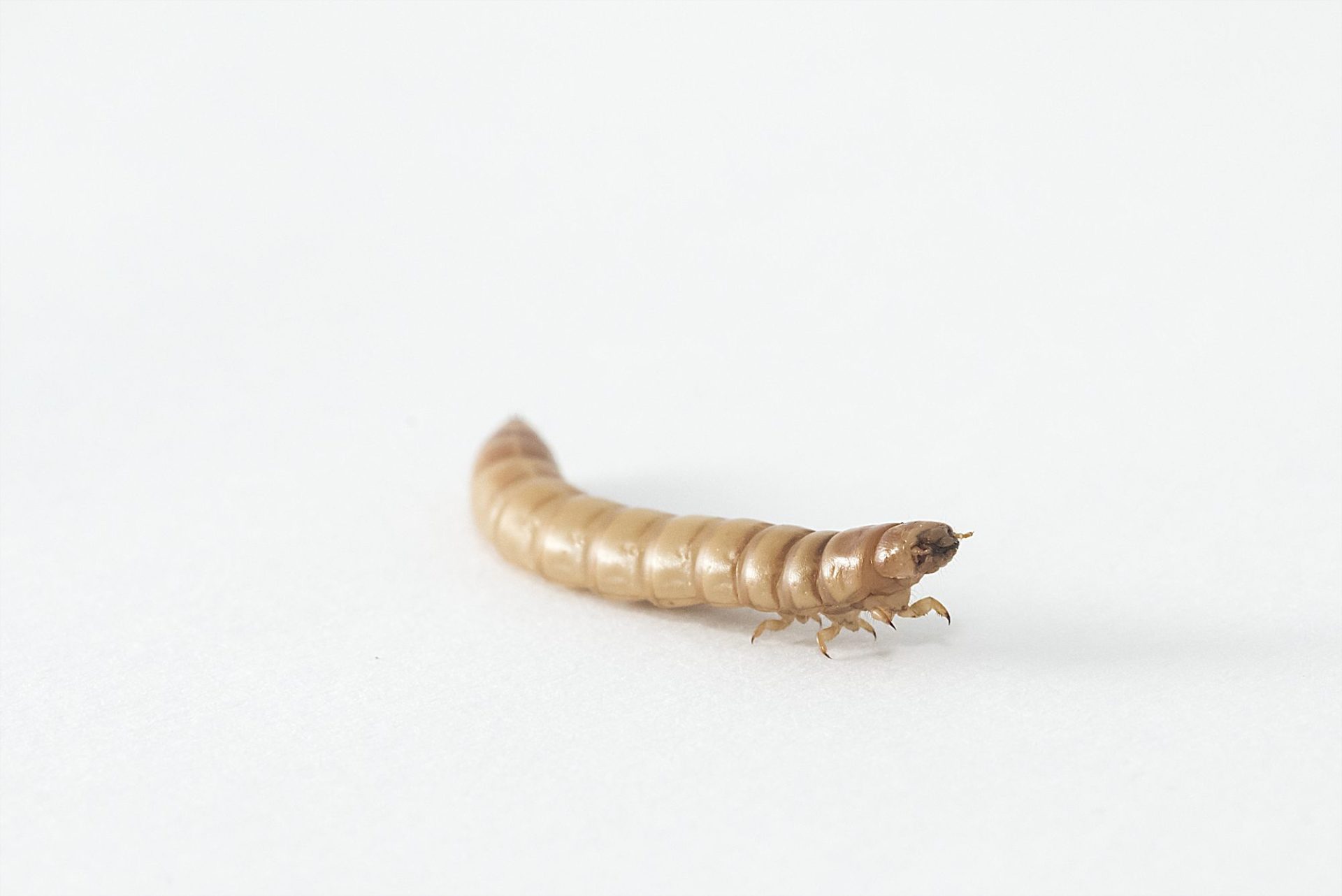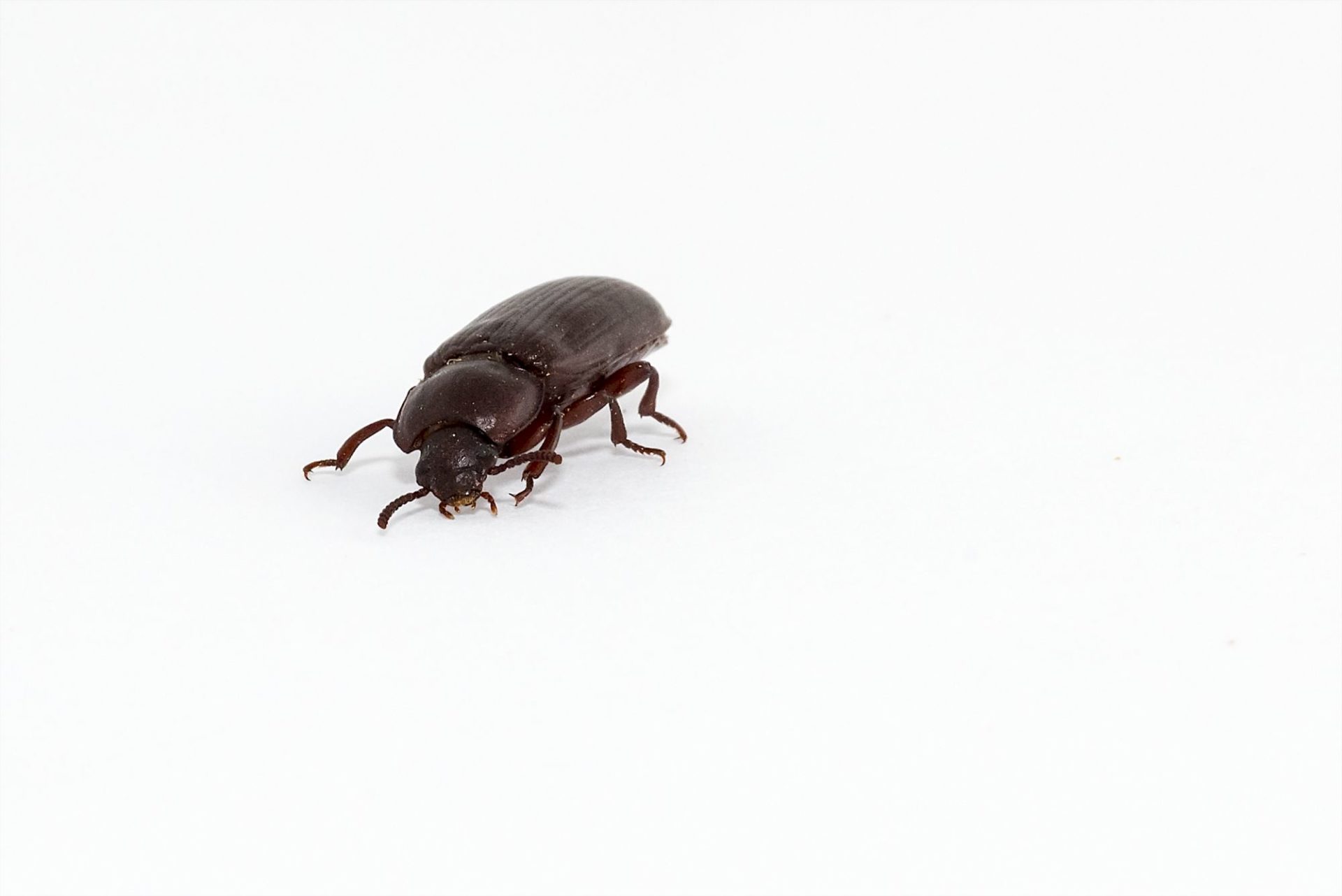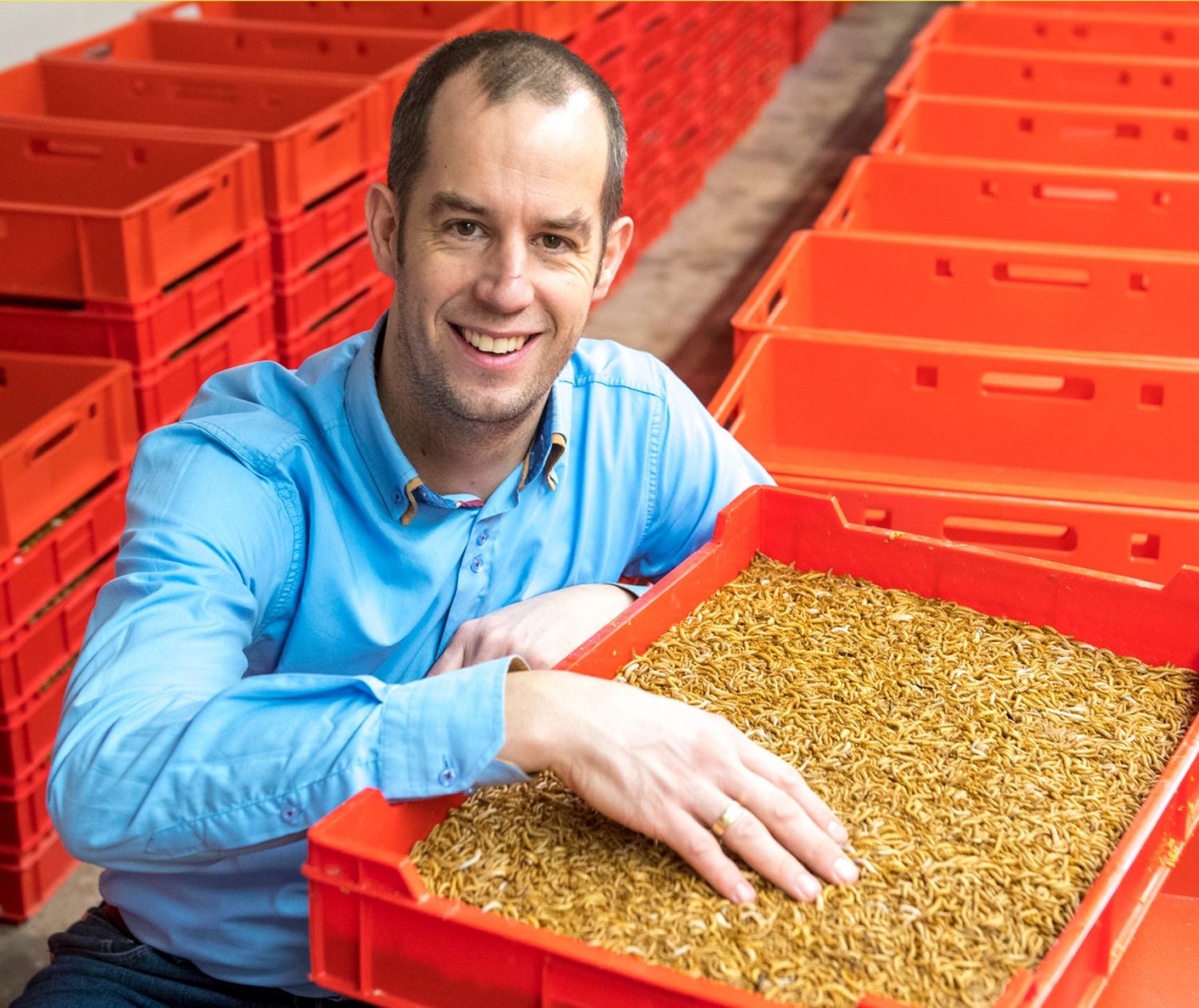The charm of a business is often in the stories. Janmar Katoele, one of the partners of Wadudu from Beilen, has a few. For example, about the start of Wadudu's production of edible insects in 2015. Katoele: "I picked up a handful of 10-gram mealworm from a pet store in Beilen. I didn't have to pay, but the owner did say he wanted a kilo of mealworm back in a year.'
That mission more than succeeded because Wadudu started with 1 square meter and 10 grams of mealworm in a shower stall, now there is nearly 3,000 square meters of production space, while doing plenty of research and consulting. And there are 15 people working there by now.
Impact beyond the salvation of Wadudu
Wadudu's insects are the source of animal protein. That protein is used in animal feed (feed) and in human food (food). But the company from Beilen has a higher goal than just the production of insects. Research - to make the chain stronger and more profitable - and advice - transparency and knowledge sharing contribute to the growth of the sector - ensure an impact that extends beyond Wadudu's salvation.
The Beiler company also plays a role in the protein transition, a shift in consumption from animal protein to plant-based and new sources of protein. Katoele: 'But if the world population increases by 2 billion people, the protein requirement will increase by at least 40 percent. So we need more protein.'

'The story touched me and didn't let me go'
Janmar Katoele studied "animal husbandry" at Wageningen University. And then ended up in the world of banking and subsidy advice. The turnaround in his career came in 2012 when he visited a reunion in Wageningen. There was a lecture there on edible insects. 'The story touched me and did not let me go,' Katoele says. 'I immediately wanted to do something with it. But my wife Laura immediately said: not now. Good, I thought, so later it is allowed.'
The start was in 2015 and 2019 was the year Katoele thought, "Now we have to move on. With new associates joining, a move was made. A 2,600-square-meter growing space was rented in Hoogersmilde this year. Katoele: 'Everything in Hoogersmilde should have been finished by now, but we too are suffering from corona perils. Funding, sales, the supply of materials, uncertainty in the market, these are all factors that come into play now.'
Tons of glassworm go to buyers
Wadudu focuses very specifically on glassworm production. It is an extremely circular process. The beetle lays eggs, from which the worm emerges, then the pupa grows and finally the beetle. Katoele compares the beetle to the butterfly: the butterfly provides eggs and then successively creates caterpillar, cocoon and butterfly.
In that whole process, Wadudu grabs the part of the growth from egg to the immature worm, called glassworm. Tons of glassworm go to 15 to 20 farms. The glassworms are harvested every week, as they are called.
But Wadudu has also developed its own mealworm slurry - a vacuum-packed soaking goodness. It is a semi-finished product that can be made into sausage and meat, as well as dog cookies.

Biology is leading, not technology
Wadudu has a list of goals, which can also be called standards and values of the company. We have already mentioned a few of them. But it is also important to Katoele and his people that production should be circular and sustainable. 'And in addition, biology is leading,' he states. 'There is a lot of technology in the company. But it's all supportive. As soon as technology becomes leading it means the end of the company.'
Joep de Vries, Business Developer NOM:
'In the Northern Netherlands, as part of the protein transition, we want to bring the share of animal protein from 60 to 40 percent and vegetable protein from 40 to 60 percent. Wadudu is a source of knowledge in that process that cannot be underestimated, a gem still in its shell. You have to know that without animal protein, humans have a health challenge. In that assemblage of proteins, Wadudu plays a role. Now one supplies for feed (animal feed, ed.), soon for food and who knows in the very long term for pharma.'
Dave de Groot, Investment Manager MKB Fonds Drenthe
'There is a lot of expertise at Wadudu. The company plays a serious role in the protein transition. Wadudu is like a hatchery in a poultry farm, they hatch the eggs. The entrepreneur started with an idea and it's amazing how they have expanded that into production. International parties come to get advice. Now the production is still mainly for animal feed, but soon that protein will also be part of human food.'
Answer 4 simple questions to quickly find out if you may qualify for funding through NOM.
